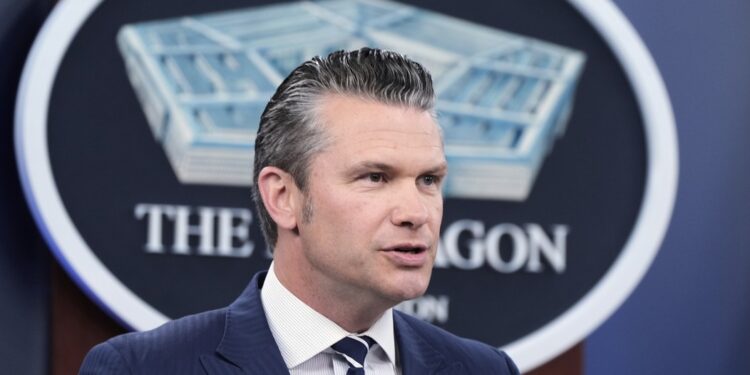Something unusual is happening inside the Pentagon. Secretary of War Pete Hegseth has issued an order that all top U.S. military commanders worldwide—roughly 800 generals and admirals—must report to Quantico Marine Corps Base next week for a no-notice meeting. Each has been told to bring their senior enlisted adviser. The order reads: “All general officers in command in grade O-7 through O-10 and their general officer senior enlisted advisers are directed to attend within operational constraints.”
The unprecedented nature of the gathering has left officials uneasy. One defense insider admitted, “People are very concerned. They have no idea what it means.” Another warned, “It will make the commands just diminished if something pops up.” A U.S. official asked pointedly, “Are we taking every general and flag officer out of the Pacific right now? All of it is weird.”
The concern isn’t just about logistics. Traditionally, military leadership is never pulled wholesale into one location without a clear agenda. As one source put it, “You don’t call GOFOs leading their people and the global force into an auditorium outside D.C. and not tell them why/what the topic or agenda is.” The secrecy strongly suggests sensitive matters are on the table—likely involving personnel, discipline, or compliance.
Hegseth has already signaled his intent to reduce the bloated ranks of generals and flag officers by 20%. A closed-door meeting of this scale could be the stage where that initiative begins. For years, critics have argued that excessive bureaucracy at the top has weakened the military’s efficiency while draining taxpayer dollars. A leaner, combat-focused command structure would mark a significant departure from the Pentagon’s culture of endless layers and paper-pushers.
But this isn’t just about trimming fat. The Department of War faces growing resistance from within. Despite orders, woke DEI programs still surface in training sessions. Service members discharged over COVID mandates have seen little justice, with only one reinstated. Transgender personnel continue to be promoted even against directive. And the Judge Advocate General Corps—long described as the Pentagon’s leftist enclave—has openly undermined Hegseth’s policies, referring to commanders who enforce lawful orders as “nazis” and “war criminals.” Such insubordination threatens not just cohesion but national security itself.
The military’s extremism problem is also shifting. While the media prefers to caricature conservatives as the threat, the real danger is the activist fringe—“trans, furry, green-haired, DEI-engorged” radicals undermining standards and discipline. Their influence corrodes readiness at a time when the U.S. faces growing challenges from China, Russia, Iran, and beyond.
No one believes this meeting is a casual conference. Hegseth has a message, and it will likely be uncompromising. With global threats rising and the Pentagon mired in ideological battles, the time for half-measures is over. The Secretary wants every leader in uniform to hear him directly: the era of endless social experiments is ending, and the military’s mission must return to defending the nation—not advancing political agendas.




















